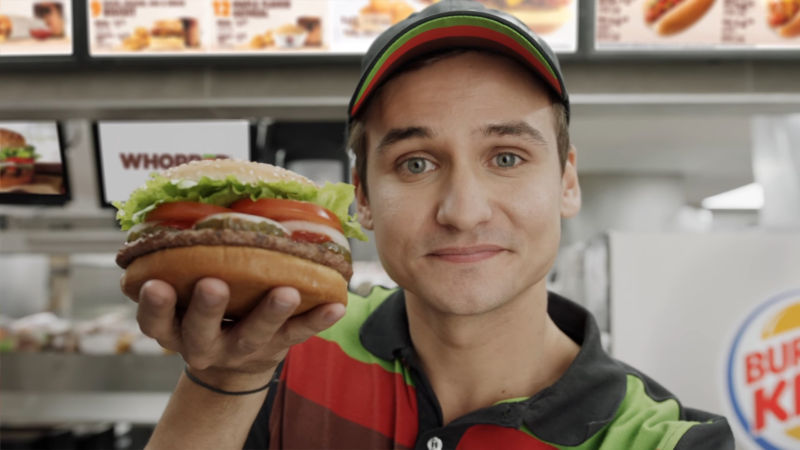Burger King's ad invokes the "OK Google" hotword to advertise fast food; gets blocked.

Enlarge / An actor on a soundstage holding an exaggerated facsimile of a Burger King product.
Before the ad was disabled, the Google Assistant would verbally read a list of ingredients from Wikipedia. Of course the internet immediately took to Wikipedia to vandalize the burger's entry page, with some edits claiming it contained "toenails" or "cyanide." Getting the Google Assistant to actually read one of these false edits was a tough task, since the Google Assistant gets its data from Google's search index, rather than a live query of Wikipedia. Still, according to The Verge, there was actually a brief period when the Google Assistant would read a false edit.
Google's shutdown of the feature is interesting. The ad will still
wake up a Google Home—the "Ok Google" phrase will light up the device,
and the little lights on top will spin while it waits for the query to
make a round trip to Google's servers. Google Home will no longer
dutifully recite the burger's ingredient list, though. Apparently Google
has made changes so that Burger King's specific recording of the phrase
will no longer trigger a voice response. Instead, the Google Home just
quietly goes back to sleep, without any response to the query. Having a
live person ask "OK Google, what is the Whopper burger?"' will still
trigger a voice response, though.
Android phones are a little less susceptible to inadvertent hotword triggers thanks to a feature called "trusted voice," which aims to listen only to "Ok Google" triggers from the device owner. Android phones also don't have "Ok Google" enabled by default, giving Burger King a smaller target area.
Android phones are a little less susceptible to inadvertent hotword triggers thanks to a feature called "trusted voice," which aims to listen only to "Ok Google" triggers from the device owner. Android phones also don't have "Ok Google" enabled by default, giving Burger King a smaller target area.
Google is working on a voice-based user authentication scheme
for Google Home, which should shut down similar hotword hijacks in the
future. Google Home would be the first Google voice product to detect
and differentiate between multiple user voices on the fly—a task I think
even some humans would have trouble with—so the feature is taking some
time.
The total time the ad triggered the Assistant was about three hours.
Burger King is still on the hook to run the now-defanged ad on
television, but we're sure the company already got its money's worth
thanks to tech articles like this one.

No comments:
Post a Comment